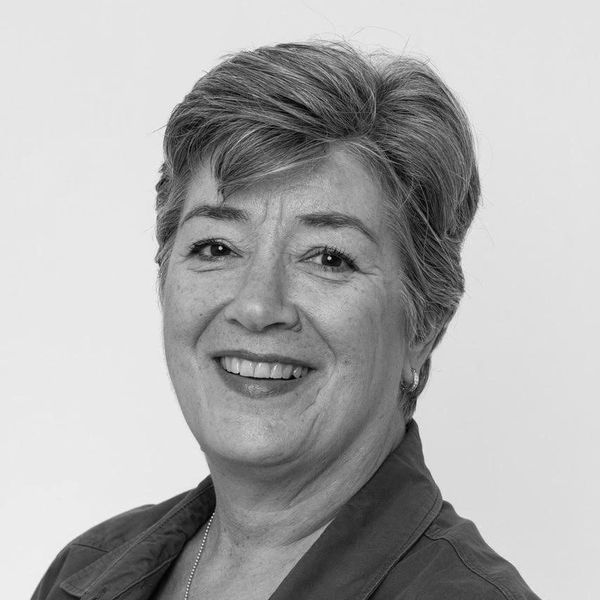Listen: Space might be a big place but the United Nations regards it as ‘congested, contested and competitive’.
This latest episode of Next Giant Leap, a podcast produced by GZERO Media in partnership with the space company MDA Space, explores the threats and tensions as space becomes busier and of greater strategic importance for an increasing number of countries.
“We have to avoid, by all means, that it becomes a Wild West,” says Tanja Masson-Zwaan, a space law expert at Leiden University in the Netherlands. She adds, “We have regulations, laws and treaties that have been in place for the last fifty years, but we need more to govern this new frontier of space utilization, because the rules that we have are basic principles and do not go into the details.”
Satellites are now being deployed to Low Earth Orbit at a rate of thousands every year. This zone of space is already littered with old defunct satellites and the remains of discarded sections of rockets which have accumulated over more than five decades. The risk of collisions is increasing, raising fears of a runaway cascade of space debris.
Tests of anti-satellite (ASAT) weapons have showered still more debris into Low Earth Orbit. Since 2007, China, the United States, India, and Russia have conducted ASAT tests. Last year the United States announced its own moratorium on ASAT tests and, through a United Nations resolution, it has called for other nations to follow suit. So far China, Russia, and India have not signed up. So is space set to become a new theater for conflict and weapons proliferation?
“Look at how satellites have become embedded in our way of life,” says Kevin Whale, senior director of defense strategy at MDA Space. “If we wreck space, it’s almost one step down from nuclear catastrophe”.
Within a few years, a new phase of the space race will begin. Both the United States and China will be competing to get people to the moon and exploit its resources, particularly water ice in craters at the lunar south pole.
According to Scott Pace, director of the Space Policy Institute at George Washington University, “The Outer Space Treaty says space is the province of all mankind, meaning it's open to usage really by everybody. On the other hand, the principles say we should avoid harmful interference. And so the question is, how do we go about balancing those two imperatives: open to everybody but avoid harmful interference?”

Tanja Masson-Zwaan
Tanja Masson-Zwaan
Deputy Director, International Institute of Air and Space Law, Leiden University
Dr. Tanja Masson-Zwaan is Assistant Professor and Deputy Director of the International Institute of Air and Space Law at Leiden University, and President Emerita of the International Institute of Space Law. She currently also serves as Vice President for Science and Academic Relations of the International Astronautical Federation. Tanja advises the Dutch Government and other institutions on space law issues and was co-founder of the Hague International Space Resources Governance Working Group. She teaches at universities worldwide and is Global Faculty at International Space University.

Scott Pace
Scott Pace
Professor of the Practice of International Affairs, George Washington University
Dr. Scott Pace is Professor of the Practice of International Affairs, Director of the Space Policy Institute, Director of the Institute for International Science and Technology Policy and Director of the MA International Science and Technology Policy program at the George Washington University's Elliott School of International Affairs. His research interests include civil, commercial, and national security space policy, and the management of technical innovation.
Between 2017 and 2020, Dr. Pace served in the White House as Deputy Assistant to the President and Executive Secretary of the National Space Council. He previously served as the Associate Administrator for Program Analysis and Evaluation at NASA from 2005 to 2008 and Deputy Chief of Staff for the NASA Administrator from 2002 to 2003. Prior to his work at NASA, he was the Assistant Director for Space and Aeronautics in the White House Office of Science and Technology Policy.

Kevin Whale Credit: MDA
Kevin Whale
Senior Director of Defense Strategy, MDA Space
Kevin Whale is the Senior Director of Defense Strategy at MDA Space. In collaboration with business area leaders and teams, Kevin leads the development, adaptation, and execution of MDA’s pan-corporation global defense marketplace strategy for business advancement.
Brigadier General (retired) Whale served in the Royal Canadian Air Force for 36 years achieving flight qualifications on Kiowa, Twin Huey, Griffon, and Apache helicopters delivering tactical aviation mobility, reconnaissance, and aerial firepower effects to Joint warfighters. In 2017 he transitioned to space capabilities force development, readiness, and operations leading the Canadian Armed Forces Joint Space program and then as an exchange officer with the US Space Force.

Kevin Fong. Credit: Anthony Cullen
Dr. Kevin Fong (host)
Professor, Department of Science, Technology, Education and Public Policy (STEaPP) at University College London
Kevin Fong is a senior emergency care physician and anesthesiologist in the UK’s National Health Service. He is also an expert in space medicine and has worked as a researcher in NASA’s human spaceflight program in Houston. He is also a broadcaster who has hosted many radio and television shows, and podcasts on space flight and exploration. They include the BBC hit podcast ‘13 Minutes to the Moon’.
- The satellite revolution in Low Earth Orbit ›
- The Graphic Truth: Space junk — enter the trashosphere ›
- Next Giant Leap: New frontiers and the business of ... - GZERO Media ›
- Mission to the Moon, with Artemis II astronaut Jeremy Hansen ›
- Can the US stay ahead of Russia & China in the space race? - GZERO Media ›
- Mark Kelly on the new space race - GZERO Media ›






